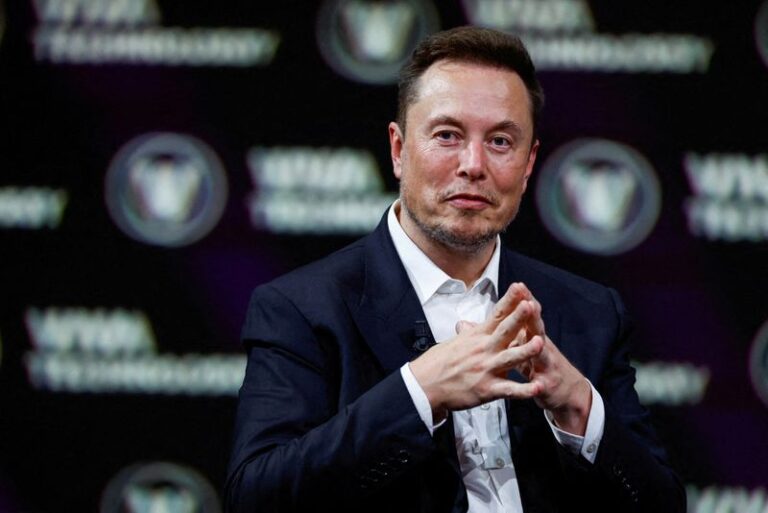By Tom Hals
WILMINGTON, Del. (Reuters) – Tesla appears to have convinced an army of small investors and big funds to sign on to Elon Musk’s $56 billion pay package. Now comes the hard part: persuading an already skeptical Delaware judge to recognize it.
Musk said late Wednesday that shareholders were voting in favor of both the pay package and a board-sponsored move of Tesla’s legal headquarters in Texas from Delaware. Official voting results are expected Thursday at the company’s annual meeting.
Musk is the driving force behind Tesla and responsible for many of its advances, which has led to vocal support for the pay package, particularly among smaller shareholders. Yet sales and stock prices have fallen recently, reinforcing concerns that gave rise to a concerted “no” vote.
Before Tesla can give Musk stock, there will likely be months of litigation over the salary ratification vote, Musk’s efforts to rally shareholders in favor of his compensation and the appeal of the original decision, four months after a Delaware judge overturned the pay package.
A final legal outcome in Musk’s favor is not certain and will not come quickly.
Judge Kathaleen McCormick of the Delaware Court of Chancery overturned the salary amount in January because she found that Musk had poorly controlled the 2018 board negotiation process. She also ruled that Tesla did not had not fully informed investors before voting in favor.
“A shareholder vote would not automatically overturn Chancellor McCormick’s decision. We are in uncharted territory here,” said Samantha Crispin, a corporate lawyer at Baker Botts.
According to Tesla, Thursday’s shareholder vote essentially went back in time and corrected the 2018 shareholder vote by disclosing enormous amounts of information to investors, including McCormick’s 200-page decision.
Tesla claimed to have fixed the problem of Musk’s dominance over the salary negotiation process. He ultimately created a special committee consisting solely of independent board member Kathleen Wilson-Thompson, who reviewed the 2018 pay deal and decided it was in the best interests of shareholders.
But Tesla also acknowledged in its securities filings that favorable ratification might not resolve the pay dispute. Ratification is primarily seen as a tool to resolve issues such as technical glitches in corporate documents.
Many major shareholders and some smaller shareholders voted against the pay package, frustrated by the size of the price tag, slowing Tesla’s business and Musk’s growing list of distractions, including ventures into rockets, artificial intelligence , social media, neuroscience and tunneling.
At least one shareholder has already filed a complaint against the vote.
The lawsuit filed in Delaware Chancery Court by Tesla investor Donald Ball accused Musk of using “strong and coercive tactics” to get his compensation plan approved. He cites posts from Elon Musk on his social media platform almost double its current holdings.
But Tesla and Musk will likely say that Musk is allowed to express his desire to leave the company.
Zohar Goshen, a professor at Columbia Law School, said he thought the Delaware court’s decision should be overturned after an upvote, but acknowledged the situation was too unusual to discuss.
“It’s difficult to estimate how the court will rule because there is too much noise around this decision. But my personal view is that Tesla should succeed,” Goshen said.
(Reporting by Tom Hals in Wilmington, Delaware; additional reporting by Rachael Levy in Washington; editing by Peter Henderson and Matthew Lewis and Miral Fahmy)


